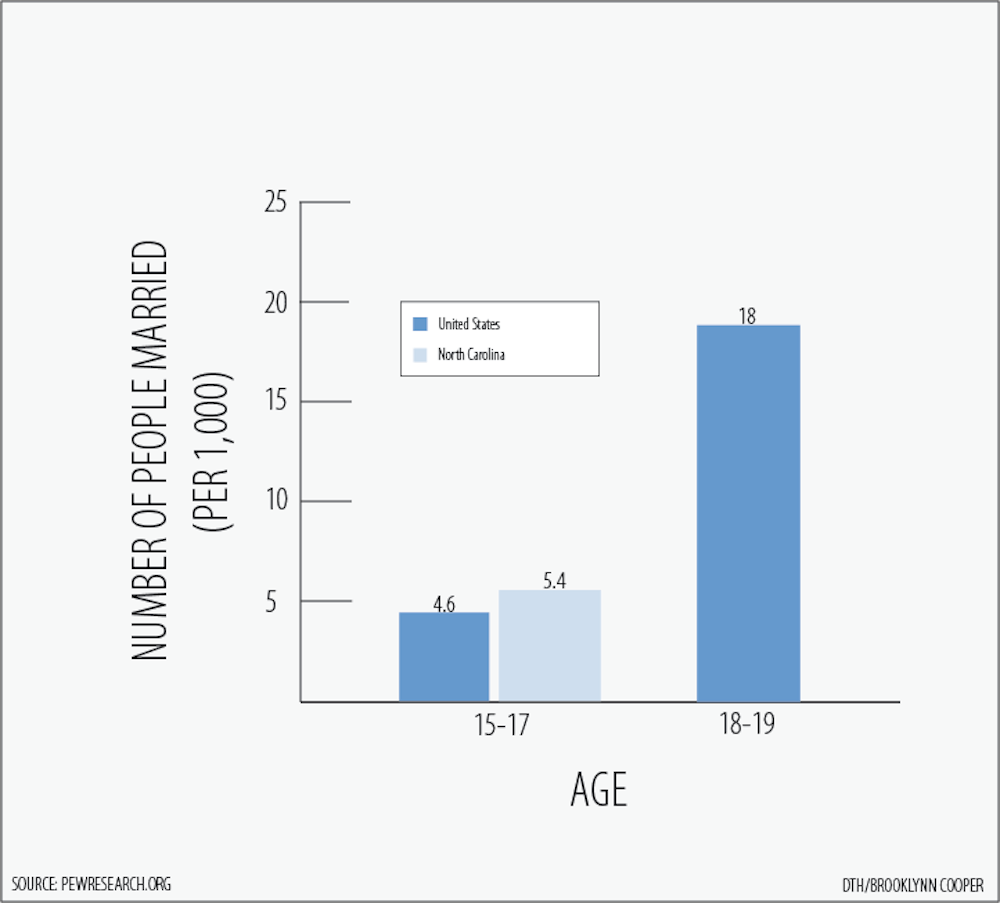Although census data shows child marriages in the United States are rare, a report by the Tahirih Justice Center shows varying state laws directly contribute to minors getting legally married.
The report discusses North Carolina laws regarding child marriage — such as the fact that a pregnancy lowers the age floor for legal marriage to 14 years old in the state.
Jeanne Smoot, senior counsel for policy and strategy at the Tahirih Justice Center and author of the report, said she assumed child marriages were a rare occurrence and a thing of past generations. She was shocked at what the report found.
“Our jaws dropped and our stomachs clenched to see how many minors were getting married, how young some of them were and what some of the age differences were between the parties,” she said.
The Pew Research Center also released a study that said the national average for 15 to 17-year-olds married is 4.6 per 1,000 people in this age group. The rate of child marriage in North Carolina is slightly higher— at 5.4 per 1,000. West Virginia is the highest with 7.1 per 1,000. The national average for 18 to 19-year-olds getting married is much higher, at about 18 per 1,000.
Smoot said using census data, as Pew did, can misrepresent the actual number of married minors, since the census asks the respondent if they are married without asking for any documented proof. She said young people could report they are married religiously or culturally but may not have gone through the civil procedure of obtaining a marriage license.
“It may be over-inclusive of people that didn’t get married under the civil laws of North Carolina,” she said. “But it’s also under-inclusive in that it’s only gauging how many 15 to 17-year-olds they estimate were married and not how many people were already married in that age range—or younger— and were divorced by the time of the survey, or people who are 18 to 19 now, but married initially at those younger ages.”
In Smoot's study, data was gathered from 38 states that held records of marriage licenses, but Smoot said North Carolina hadn't maintained statewide data on issued marriage licenses.
"So it wasn’t like there was any cache of this information sitting in already coded databases," she said.



